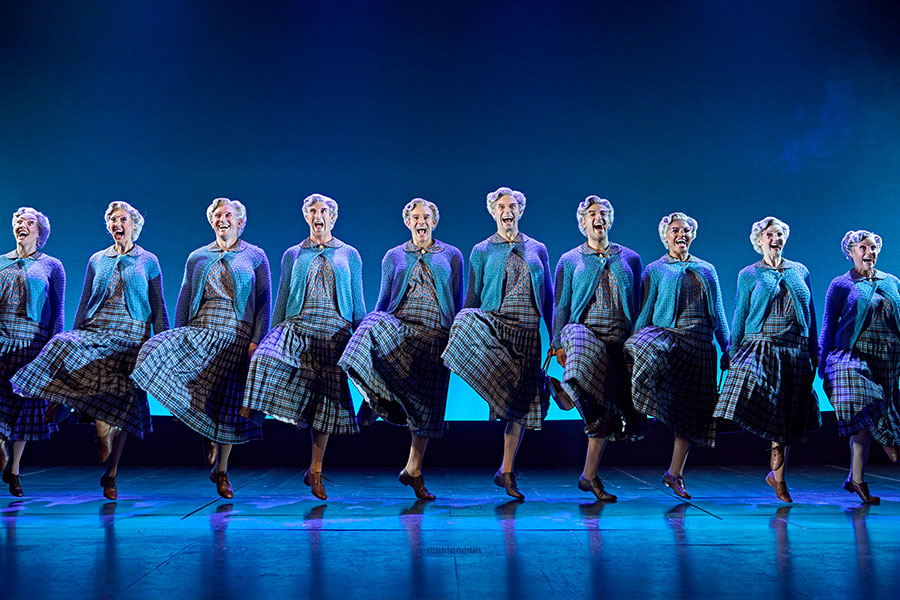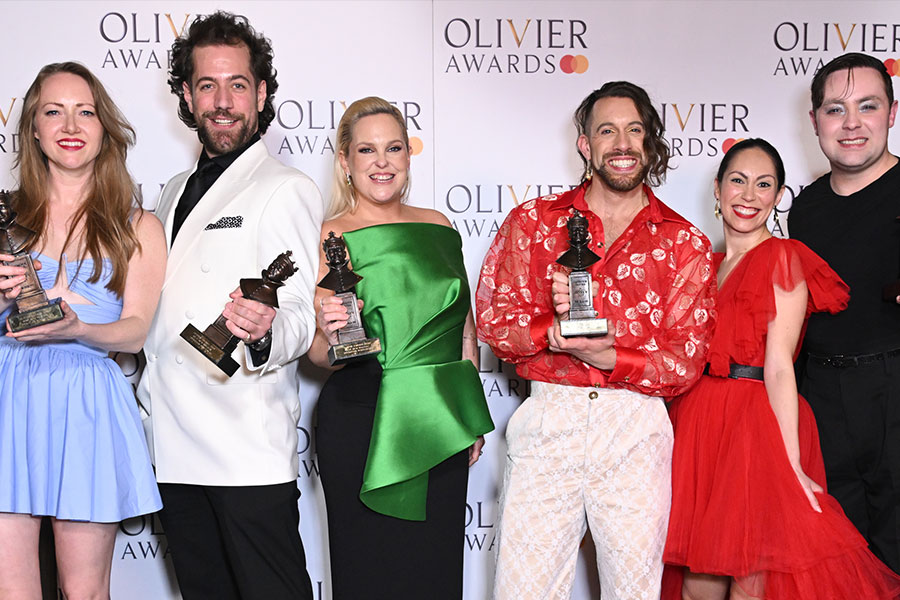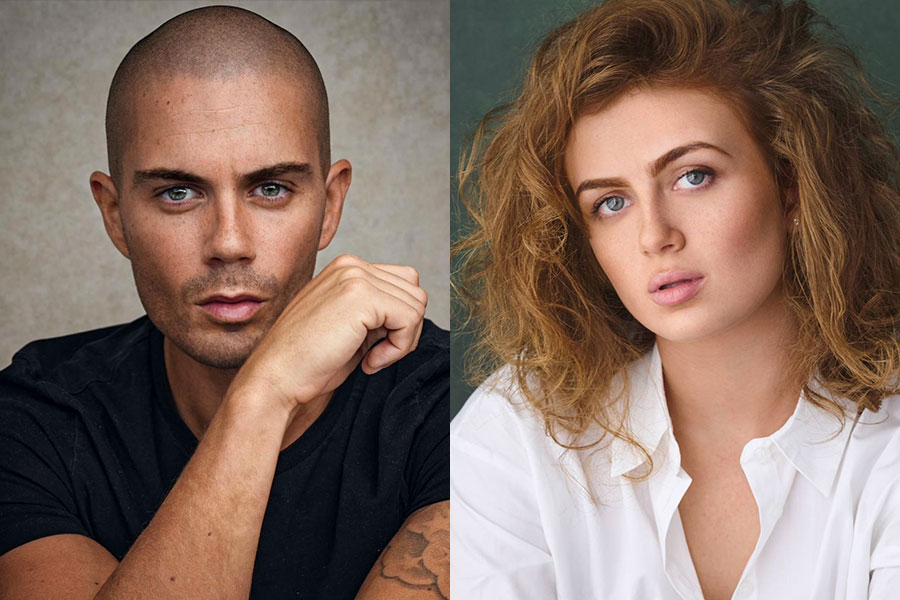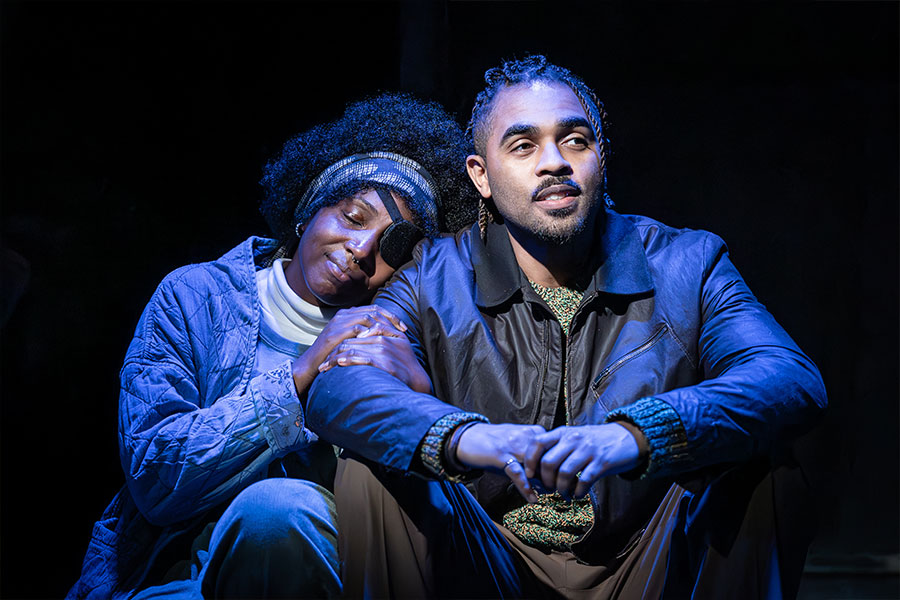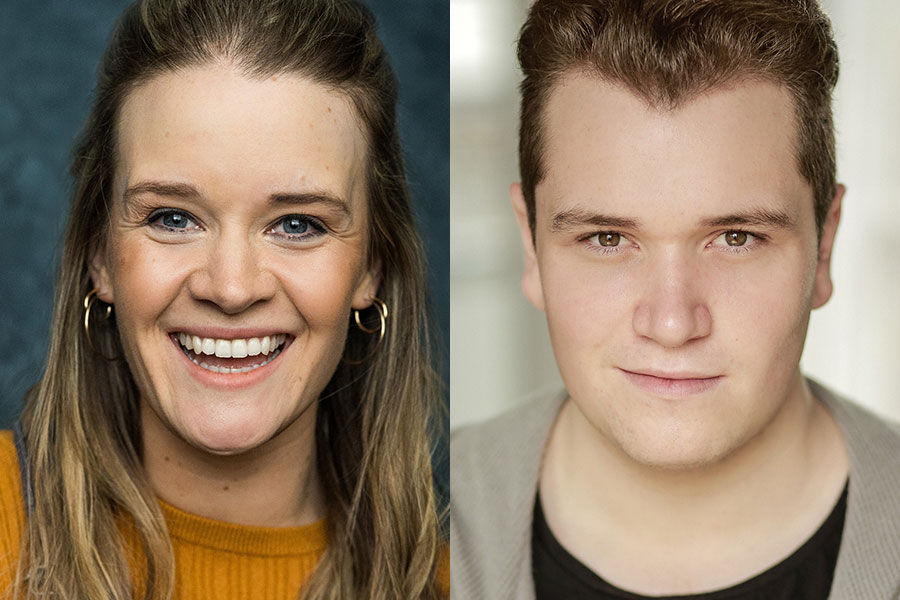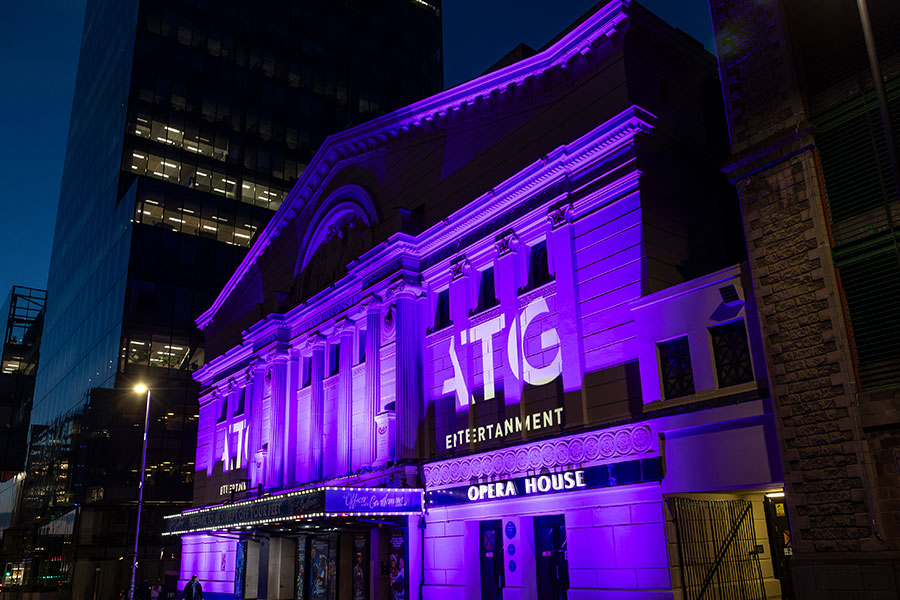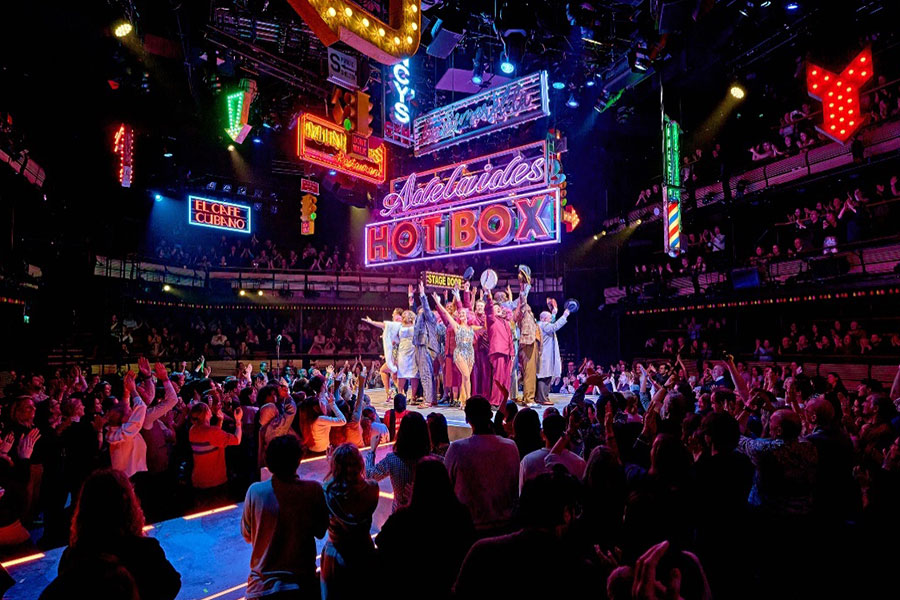Brief Encounter with … London Road‘s Alecky Blythe
Alecky Blythe and Adam Cork‘s Whatsonstage.com Award-winning verbatim musical London Road has been revived for a run in the NT Olivier, following its premiere in the smaller Cottesloe last year.
For people not familiar with London Road, could you provide a quick overview?
It’s a play with music, or a musical play, created from interviews I collected with the community that were affected by the murders of the girls in Ipswich back in 2006. It follows the story of how the people living in that area of Ipswich were affected, how they dealt with it and how they came together through the tragedy.
How did it come into being?
There wasn’t a ‘eureka moment’ right at the beginning where I went ‘ooh yes, this is definitely going to be right for verbatim musical treatment’. It happened as an organic process. I was working on a piece at the time called The Girlfriend Experience at the Royal Court, and I was gathering material for that in a parlour. The women there were all talking about what was happening in Ipswich because business had gone a bit quiet since every punter was a potential suspect. In the end I couldn’t really keep myself away from Ipswich, largely because my parents live about half an hour away so I had somewhere to stay.
I went there before Steve Wright was arrested but after the five bodies had all been found. Obviously the whole town was in a state of panic and fear; I got my first lot of material and stayed for a couple of days and thought ‘this isn’t really for The Girlfriend Experience but I think I’m getting some quite good material’. I collected as much as I could and then he was arrested, and the story sort of petered out for a bit. The recordings sat on my shelf for about six months and I thought at the time I didn’t have enough to make a full play.
Then I got invited to do a workshop at the National Theatre Studio, so I took the material along, never thinking that I’d make something about Ipswich but just as something for us to experiment with. And it turned out that it responded very well to music; by the end of the week we’d written a few songs and the National were like ‘yeah we think you’re onto something here’. Then it was announced that the trial was going to be back in Ipswich. So that for me was very important, because at that stage I wasn’t certain what the next phase of the story would be. So I went back, and things began to come together.
How did you go about getting the interviews? Did you feel like a journalist doorstepping?
I didn’t really do any doorstepping until Steve Wright was arrested because I didn’t know whose door I might be knocking on. So I headed for the town and the marketplace; it was running up to Christmas so lots of people were out. It was holiday time, and people were buying their presents. I would just approach people on the street and say “hello, I make documentary plays, can I ask you a few questions about what’s going on?”
I wasn’t trying to go down and get any dirt on the girls or Steve Wright which I think the press were looking for. I was asking them what was it like for them living there – maybe that’s a question they hadn’t been asked and were happy to talk about because their experiences were unsettling. Ok, they hadn’t lost a daughter but they were going through difficult times and they wanted to share that.
Do you worry about being exploitative?
I think it’s about trying to go a bit broader with a subject, rather than hitting it directly on the nose. A lot of my work has a lightness and a humour in it which I’m drawn to. So going to the heart of a massive tragedy or going and talking to the families of the girls felt like it might be wrong, too direct, too traumatic. It would be vulture-like. And for a good piece of drama you want some weight there but it’s about trying to strike the balance with what I feel comfortable with rather than just shoving a microphone in peoples’ faces.
What sort of reactions did you get to the show from those who were involved?
About 80% of them came on an outing, so they all came en masse. I think they were pretty blown away and really took a lot from it. A few of them came a couple of times. They really enjoyed it, and I think they found that watching it has brought them together even more, it’s been quite cathartic. They came and met the actors afterwards in the bar and it was wonderful. They loved meeting the actors and likewise the actors loved meeting them. To the actors the real life people they play are like celebrities to them, they feel like they know them really well as they have been working so closely with them by hearing their voices in their ears for weeks. It’s an extraordinary moment when the two worlds meet, and quite an emotional one.

Would you take it to Ipswich?
I wouldn’t take it to Ipswich. I think it would be too raw and I think that would be wrong. If people want to come from Ipswich and see it that’s great. But I think it would be wrong to take it there because I’m sure some of the pain is still very present for some people.
Last time London Road was in the Cottesloe and now it’s in the Olivier. Quite an upgrade.
We didn’t want to change it too much because it works. 90% of the show is direct audience address, so the audience hopefully experiences these people as I did, and they feel as if they’re being spoken to. The challenge was the keep that informal intimate nature of conversation while talking to a theatre full of 1200 people, as opposed to 250. We made a couple of tiny little tweaks but nothing major. I think the Olivier lends itself beautifully to storytelling. It’s a lovely, wrap-round, thrust stage. In a space like the Lyttelton it would be a lot trickier for us to pull it off.
How did you first get started with verbatim theatre?
I started out trying to make it as an actress. I went to Warwick and did Theatre Studies and then trained at Mountview, doing a postgrad. After that I spent about seven years doing really not very good stuff on the Fringe. So I was doing TIE in Spain, dodgy pubs in the back end of Greenwich, Frosty the Snowman in the forecourt of Tesco’s in Croydon, all sorts of things.
I was a long time member of the Actors’ Centre where I would regularly go to try and remind myself that I was an actor and do classes. And I learnt this particular technique of recording conversations and wearing earphones in a workshop run by Mark Wing-Davey, who at the time was running the Actors’ Centre. He taught this class there called ‘Drama Without Paper’, and it was something he had discovered while working with American actress and academic Anna Deavere-Smith. Lots of us got the bug, and I got it really bad, and I was like ‘I want to make my own show because I think this is better than what i’m auditioning for and not even getting the parts for’. And with his blessing I decided to make my own play, that I would then perform in and invite agents to and hopefully I’d get a part in The Bill and that was it. That was the plan.
He taught the technique as choose a subject, choose a good talking point, go and interview people about that subject and edit the interviews. The play wouldn’t necessarily have a narrative, it was more a collage of different little anecdotes and you’d go and talk to lots of quirky characters and play them all. So I chose the subject of fear because I thought that would be a good talking point. I’d just moved to Hackney and there was a siege going on up that road and I thought that’s quite handy, I can go up and talk to people about it. The siege then became the story and I made this play called Come Out Eli – I’d kind of unwittingly walked into a narrative. There are lots of echoes of London Road in it actually.
Anyway, I showcased it at the Actors’ Centre and Mehmet Ergen came to see it and invited me to stage it at the Arcola. That went really well and we won a Time Out Award which led to a run at the BAC. Out of that I got a literary agent and thought ‘oh, so I’m a writer am I?’ I think a lot of making stuff is about being open to things and seeing where it can lead you; I’m still trying to get my part on The Bill!
So besides The Bill, what’s next?
I was meant to have something on BBC recently about the riots but it got pulled on the day of transmission due to a judge who was doing a case in Birmingham. There were no interviews with anyone from Birmingham, the boys who got knocked over and killed weren’t even mentioned, but I think he felt the sentiments that were expressed by the rioters could affect the judgement. The trial is over now so I don’t know when it’s going to get broadcast, but I know they don’t want to put it on during the Olympics. But I hope it does get shown – if only to answer anybody who’s wondering what I’ve done since London Road!
London Road continues in the NT Olivier until 6 September 2012




